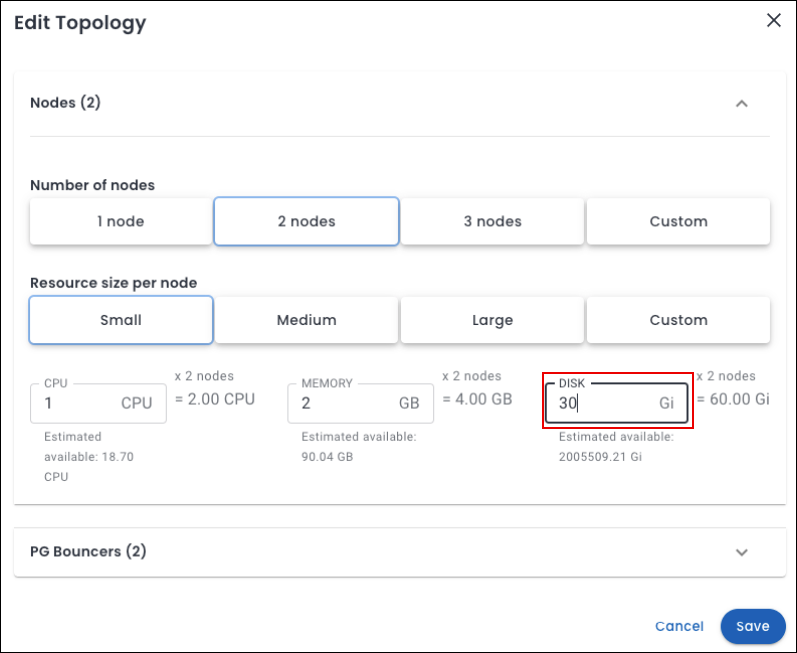Manual storage scaling¶
You can increase the capacity of your storage through manual storage scaling. This feature enables you to adapt to rising data demands, providing more flexibility in managing growing database workloads while ensuring system stability and data security.
Storage management in Percona Everest¶
In Kubernetes environments running Percona Everest, storage is managed using Persistent Volumes (PVs) and Persistent Volume Claims (PVCs). Everest automates storage provisioning through StorageClasses.
For storage scaling, Everest supports volume expansion, enabling users to increase storage size provided the associated StorageClass allows it.
For detailed information on PVs and PVCs, refer to the official Kubernetes documentation.
Prerequisites¶
-
When scaling storage manually for a database managed by Percona Everest, ensure that the
StorageClassused by the database’s PersistentVolumeClaim (PVC) supports volume expansion. This setting allows the size of the underlying Persistent Volume to be increased after it has been created.Note
In Kubernetes, manual disk scaling only works if the associated
StorageClasshas the following setting:allowVolumeExpansion: trueTo verify if your storage class allows for volume expansion, execute the following command:
kubectl get storageclassExpected output
NAME PROVISIONER RECLAIMPOLICY VOLUMEBINDINGMODE ALLOWVOLUMEEXPANSION AGE expandable-storage kubernetes.io/aws-ebs Delete WaitForFirstConsumer true 42m -
When scaling storage in Percona Everest, always verify that resource quotas allow the requested storage capacity. For more information, see the known limitations section.
Editing storage capacity¶
Important
- Cluster resizing is permanent and cannot be reversed.
- Disk size can only be increased. Decreasing the disk is not supported to protect data integrity.
To modify storage capacity, follow these steps:
-
Navigate to the Overview page for your database from the Percona Everest home page.
-
Click Edit in the Resources panel. The Edit Topology pop-up will be displayed.
-
Locate the DISK field and enter the disk value (in Gi) to the new desired capacity.

-
Click Save.
-
After clicking Save, go back to the Overview page and check that the DISK field reflects the new capacity.
For information about the limitations of manual storage scaling, refer to the known limitations section.